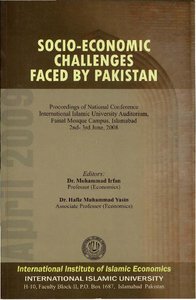F. Socio-economic challenges and opportunities in Pakistan.

Pakistan faces a range of socio-economic challenges, including poverty, unemployment, inequality, and a lack of access to basic services such as education and healthcare. However, there are also opportunities for the country to address these challenges and build a more prosperous and equitable society. Here are some of the key socio-economic challenges and opportunities in Pakistan:
Challenges:
- Poverty: Pakistan has a high poverty rate, with around 24% of the population living below the poverty line. This is particularly acute in rural areas, where poverty rates are higher than in urban areas.
- Unemployment: Unemployment is a significant challenge in Pakistan, particularly for young people. The country has a large youth population, and many young people struggle to find meaningful employment opportunities.
- Inequality: Pakistan has high levels of income inequality, with wealth concentrated in the hands of a small elite. This has contributed to a range of social and economic disparities, including limited access to education, healthcare, and other basic services.
- Infrastructure: Pakistan’s infrastructure is often inadequate, particularly in rural areas. This includes a lack of basic amenities such as electricity, water, and sanitation.
Opportunities:
- Human capital: Pakistan has a large and growing population, which represents a significant potential source of human capital. If properly educated and trained, this workforce could be a major driver of economic growth and development.
- Strategic location: Pakistan’s strategic location at the crossroads of South Asia, Central Asia, and the Middle East makes it an important hub for trade and commerce.
- Natural resources: Pakistan has abundant natural resources, including coal, oil, natural gas, and minerals such as copper and gold. Developing these resources could provide a significant boost to the country’s economy.
- Demographic dividend: Pakistan’s large and growing youth population represents a potential demographic dividend. If young people are educated, trained, and given meaningful employment opportunities, they could help to drive economic growth and development.
To address these challenges and leverage these opportunities, Pakistan will need to pursue a range of policies and initiatives aimed at promoting economic growth, reducing poverty and inequality, and improving access to basic services. This will require sustained efforts and cooperation from government, civil society, and the private sector.